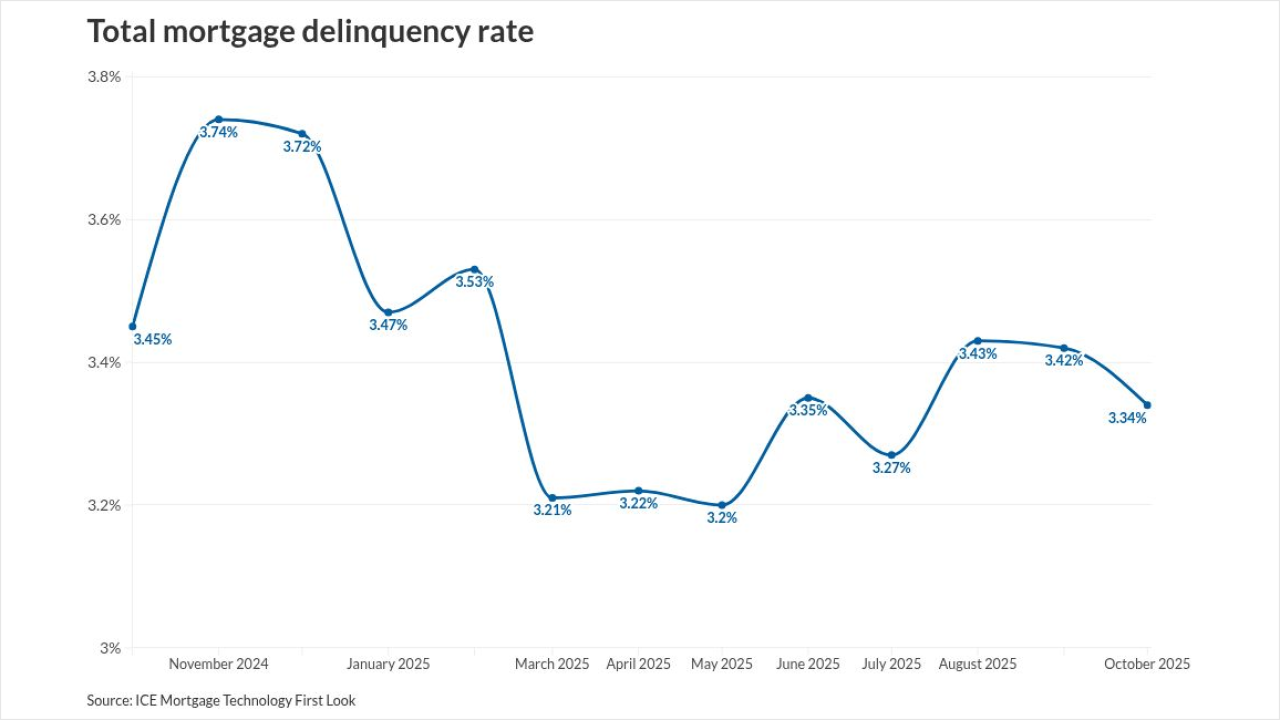
But the implications of what some consumers have come to think of as a mortgage “payment holiday,” go far beyond that for the companies responsible for originating loans and absorbing or advancing suspended payments.
Below we lay out the developments which have or are likely to arise for mortgage companies as a result of widespread forbearance.

Increased mortgage servicing transfer activity
"Unless the government comes and does something special for servicers, we anticipate some industry consolidation; as that happens, we see servicing transfers happening on a more frequent basis," said Mark Tinkham, director of strategic alliances at Paradatec, a firm that automates and categorizes data and document exchanges.

Convergence in origination and servicing functions
"Mortgage companies are going to be centralizing and aggregating customer touchpoints because they are being forced to do it now just to handle the sheer volume," said Jane Mason, CEO of servicing technology provider Clarifire.
That will be a challenge due to the historic separation between origination and servicing systems, but the availability of automation that bridges them will likely address that concern, she said.

Repurchase risk will rise
"The repurchase risk will go up exponentially," said Allen Price, senior vice president at servicer BSI Financial Services.
That could feed into the trend toward consolidation for origination as well as servicing operations, especially for nonbanks without balance sheets or sufficient cash reserves to contend with the repurchase demands they could face.
"Remember, liquidity is now challenged, so they don't have the ability to buy back a significant amount of loans," he said.

The industry will have to figure out how repayment will work
"There's a lot of confusion as to how the forbearance is going to be applied to the loan," said Diane Bettino, partner and mortgage finance expert at law firm Reed Smith. "I think it's going to depend on the investor."
In the government-sponsored enterprise market, for example, post-forbearance options include full reinstatement or payoff of the loan, a repayment plan, and three types of modifications that are typically offered for other types of hardships.
Other options could include a lump sum payment at the end of the forbearance period, a silent second lien, a lengthening of the loan's term such that the forborne payments are added on to the end. Other types of modifications also might be made.
Some groups have pushed for a standardized approach but there's a general consensus they are

Servicers are on the hook for a new credit reporting responsibility
"The servicer has to allow borrowers to defer payment without requiring any particular proof beyond a statement from borrowers that they have experienced a hardship related to the coronavirus that necessitates this forbearance," said Quyen Truong, partner at the law firm Stroock & Stroock & Lavan. "And the servicer cannot charge extra interest, fees or penalties for that accommodation nor report it adversely to credit bureaus."
While the temporary credit bureau reporting requirement can be summarized at a high level that way, there are nuances to it that servicers will have to negotiate.
For example, there may be complications related to consumers who can't get through to servicers to put in the request they need to get forbearance due to the high call volume and long hold times. These borrowers could simply stop paying without officially filing the request that would lead to a servicer to cease adverse reporting.
Servicers will need to figure out how to handle situations like this. Some may address the issue by offering technology that provides an alternative way to file a request, for example.
Mortgage servicing companies may be able to get some guidance from the credit industry related to the legislation's temporary amendment of the Fair Credit Reporting Act but it will still involve a judgment call on their part.
The credit industry trade association "normally punts and lets the furnishers of this information make their own best decision on how to report certain things," said John Ulzheimer, a former credit bureau employee and president of The Ulzheimer Group, a consulting firm in Atlanta. "They will provide guidance on how to do it but they disclaim it."





